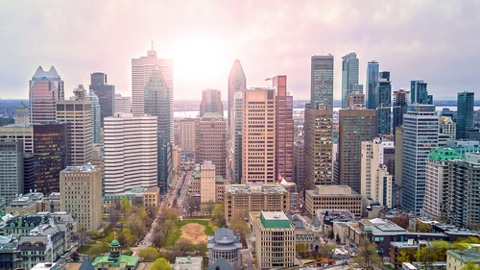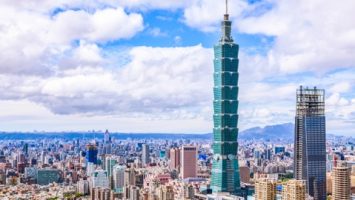
Participants in the Montreal Smart Public Lighting Control Project received one of the 2018 Smart 50 Awards and spoke with us about their groundbreaking $28M project. Learn more here:
Along with its citywide LED conversion project, City of Montreal opted to go with a smart street lighting management system. But, Montreal wanted to be independent from a precise vendor / product in the future, and interoperability between manufacturers is not there available yet. The market proposes offers several products that can reach meet this goal but, the interoperability has been in a development phase by different consortiums, such as the TALQ Consortium. When this project was realized, TALQ compliant equipment had not reached the market so, the city’s goals and market wasn’t able to be matched. Finally, the goal of the specification wrote written by the city was to forced the market to work together in order to reach meet the city of Montreal’s vision. Three independent system manufacturers agreed to work together. By doing this, Montreal did accomplish what no one has done before. The $28M project will harness innovative technologies in the development of a smarter and sustainable city. The project will create an infrastructure capable of controlling over 250,000 luminaries and allow the integration of a variety of other smart city applications.
Q: What does the term ‘smart city’ mean to you, and how does your project contribute to a larger smart city vision?
A: Today’s smart cities require deployment of connectivity, sensors, and devices. By integrating this project into Montreal’s sustainable development objectives, the city lays the foundation of a communication network architecture enabling the gradual integration of additional smart services for the benefit of its citizens. This future proof implementation allow to bring together different technology accordingly to the current and futures needs of the city.
Q: Why is the implementation of your project transformational in our current society?
A: Having interoperability standards in place contribute to gaining citizens’ trust in smart city technologies which encourage a wider adoption of connected technologies. With this in mind, projects like electronic parking signage and smart waste water remote monitoring and control management implementation will shortly be launch, which will impact the way the city will optimize its operation. As part of the “Montréal, Smart and Digital City” strategy (2014), Montréal set the goal of developing intelligent infrastructure management systems. With the innovation of road lighting products and light-emitting diodes (LEDs) and their unmatched performance to date, the conversion of the Montréal’s street lighting infrastructure was an opportunity. The arrival of this new technology pushes the boundaries of urban lighting to an unprecedented level by allowing the combination of lighting with intelligent management system. This integrated system offers several possibilities for the citizen and the city. The intelligent street light management system provides an up-to-date inventory of the lighting network, energy consumption statistics in real time and the operational status of the equipment. The system provides scheduling of lighting phases, inventory management and maintenance coordination. These functionalities are all aimed at improving the quality of the lighting service provided to citizens, which in turn positively impacts their quality of life by offering a safe and environmentally friendly city. Finally, the intelligent lighting management system provides energy savings and maintenance savings.
Q: What advice did you receive along the way that helped you complete your winning project?
A: Interoperability is the key to the growing smart cities.
Q: What advice would you give a city community or a solution provider looking to implement a municipal-level project?
A: It’s important to have a global vision of the city needs, identify the challenges and demonstrate how your selected technologies will be used to address issues in safety, mobility, comfort and climate change, now and for the future. Even if the market doesn’t have a product that responds to your goal, don’t hesitate to ask what you are looking for and the market will work to provides you what you want.
Q: What does it mean to you to win the Smart 50 Awards?
A: We’re really honored that our project has resulted in this award. This recognition solidifies our vision that interoperability is a critical step in supporting scale-able smart cities solution.


